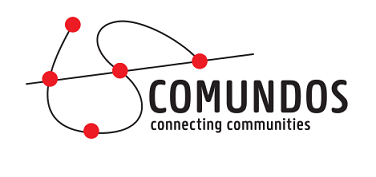CAPAM, the Agricultural Training Centre - Cameroon
This is an introduction to the Agricultural Training Centre (CAPAM), where I work as an instructor.
The aim of CAPAM's training program is to train young people in agropastoral practices. The centre is located in the village of Zamakoé, six miles from the town of Mbalmayo on the Mbalmayo-Yaoundé route, in Cameroon's Centre Region.
CAPAM is the result of topical studies carried out by Sustainable Alternatives for Development (ADD). Following these studies, the ADD found that one of the factors which contributes to the poverty of rural populations and to the unemployment of young people in Nyong-et-So'o is the absence of regular training programs.
Founded in 2014 and certified on 14th October 2015 by MINEFOP, CAPAM is the only alternative training school for 60 miles.
Its structuring is as follows:
A. An administration composed of qualified instructors
B. A parents' association which co-manages the Centre
The Centre is on a plot of 10 acres, which includes:
a. Three practical classrooms
b. Boarding complex consisting of two 50-person dormitories, as well as a canteen which holds 100 people
c. 60-metre pasture field
d. Water tower with a capacity of 5000 litres
The Centre collaborates with partner farmers who take the students on as apprentices. CAPAM recruits all young people aged between 15 and 25, who are out of work or education for a training period which lasts up to 3 years.
During the 2016-17 school year, the Centre had a 100% pass rate for the Certificat de Qualification Professionnelle (Professional Qualification Certificate) which is overseen by MINEFOP.
Furthermore, these young people benefit from direct financial support from CAPAM so that they can carry out their introductory micro-projects.
CAPAM is also developing the Centre's agricultural practices, which include:
a. A pig farm which holds 100 pigs
b. A temporary chicken coop for up to 5,000 chickens
c. A cocoa nursery for up to 10,000 plants
d. Plots of corn, beans, etc.
Finally, CAPAM trains farmers so that they are able to carry out profitable agropastoral activities. We invite families to send their children here, so that they can benefit from a quality training program at CAPAM with direct financial support to set up their projects.
This English translation has been possible thanks to the PerMondo project: Free translation of website and documents for non-profit organisations. A project managed by Mondo Agit. Translator: Daniel Hirst. Proofreader: Holly Quillin.
A gift for Comundos
Over the years, Comundos has helped remote communities around the world by teaching critical thinking, media literacy and the use of communication technology.
To do this effectively, we need your support for computers, translations, courses and social media management.
Thank you .
BE11 1030 2973 8248





